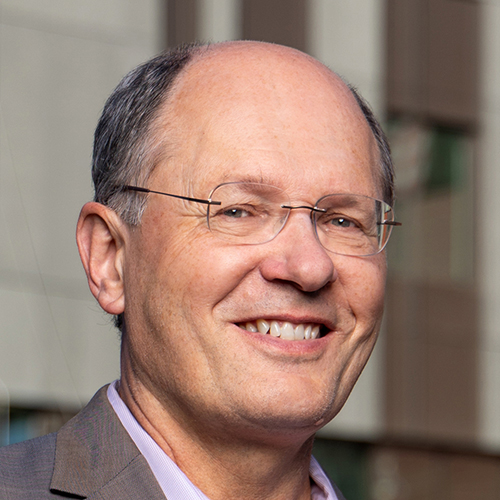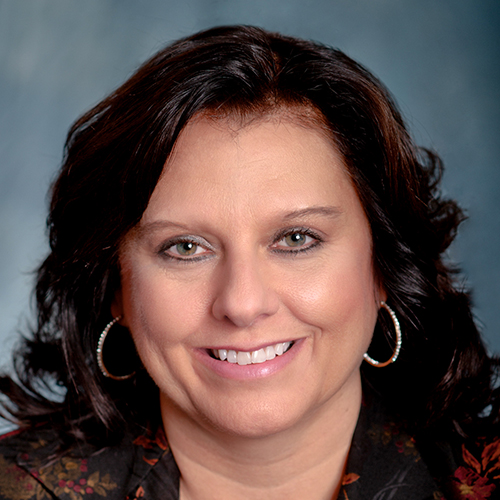A paradigm shift for patient-centered care
Currently, many patients who need long-term care are placed in large, aging facilities, far from their friends and family. The CBHL’s central location in Seattle will help patients maintain connections with loved ones.
“We want to make it easy for a patient’s family members, friends and case or housing managers to visit and play a role in their treatment,” says Dr. Ryan Kimmel, chief of psychiatry for UW Medical Center. “Relationships are especially important when a patient is discharged.”
This is why the Center is also developing a Family and Caregiver Academy to support the resilience and long-term health of patients by offering training for their families and caregivers. Programs could include basic psychoeducation and skill-building courses, a digital community that provides social connections and symptom management tools, and ultimately a collaborative learning environment for patients, families, and caregivers as well as the providers and staff who care for them.
In addition to being centrally located, the Center will also be able to accommodate a patient’s physical healthcare needs. This means a patient requiring medical or surgical care won’t have to be transferred to another hospital, which may or may not have expertise with their mental and behavioral health challenges. This is important: studies have shown that co-occurring medical conditions can reduce a behavioral health patient’s life expectancy by 10-25 years.
“Part of the unique aspect of the Center is that you’ll have psychiatrists and an excellent group of internal medicine physicians and subspecialists who can treat behavioral health and medical issues simultaneously,” says Kimmel.
Patients won’t have far to go to access the latest brain stimulation treatments, either. The neuromodulation center will offer electroconvulsive therapy (ECT) and transcranial magnetic stimulation (TMS) on both an in- and out-patient basis. These are two innovative and safe therapies that Kimmel notes can be truly lifesaving for patients with severe and persistent mental illness.
Expanding and training the physician workforce
Nearly half of the state’s counties don’t have a single practicing psychiatrist or psychologist, and community behavioral health centers often turn clients away because there aren’t enough clinicians.
“We have a lot of hospitals in Washington right now that are not fully operating because they just can’t find enough doctors and nurses,” says Unützer. “The UW Department of Psychiatry and Behavioral Sciences has developed the nation’s largest training program for psychiatry to address this need, and at the CBHL we’ll be able to teach psychiatrists, psychologists, social workers, nurses and other healthcare workers how to work with patients living with serious mental health problems.”
The new facility will also house a statewide telepsychiatry consultation program, allowing providers to contact a UW psychiatrist 24/7 for immediate guidance. Unützer sees this as vital for improving patient care in areas with limited psychiatric care resources.
“Many people will go see a family doctor, internist pediatrician or nurse practitioner, and they will present with their mental health problems there,” says Unützer. “So a provider from Yakima might call me and say, ‘I have a pregnant woman and I think she’s having a manic episode. How should I deal with that?’ I’ll give them some guidance that will help them provide good care at the moment, and then when they have another patient with similar needs in the future, they’ll have a much better understanding of how to work with them. It’s a great way to build skills and provide ‘just in time’ education and training.”
A warm and welcoming building design
The Center is thoughtfully designed to create a welcoming and healing environment for patients, students, staff and visitors. It features single-occupancy rooms with large windows to allow natural light in, and every behavioral health floor will have its own patio or balcony where people can get fresh air. The fourth floor will also have a larger outdoor area with plants, benches and aerial views of the campus and surrounding neighborhood.
“Many of our patients will spend a substantial amount of time with us, and if you can’t go outside and get fresh air, that’s not good for your mental health, even under the best of circumstances,” says Unützer.
The design also creates collaborative and inviting spaces for training new professionals.
“One of the fun parts of working in the hospital is the multidisciplinary team environment,” says Kimmel. “The new facility will have large rooms where students and physicians from different specialties can meet and share different perspectives. Giving trainees an experience in a first-class facility where they can see patients getting better will help us recruit more people into the field.”
Even the cafeteria is geared to foster collaboration.
“The bottom floor will have a cafeteria that serves our entire campus community,” says Unützer. “So every time somebody wants to have lunch, they’re going to go to the psychiatric hospital. It’s a way to say this isn’t strange or scary. It’s a beautiful place to gather and to work together, and it’s an integral part of our healthcare system.”
Fulfilling the mission and the vision with philanthropic support
While the cost of the building has been generously covered by the state, investment in people and programs is still needed to help the Center for Behavioral Health and Learning reach its full potential.
With the support of generous donors, the Center would be able to recruit top talent and ensure it has expert faculty, staff and program leaders who could help develop new treatments for mental health and substance use problems. Innovative programming could enhance recovery, reduce hospital readmissions, and attract new professionals to pursue training in mental health. And with support for capital needs — like state-of-the-art therapeutic equipment, inviting furniture and calming artwork — the facility would be able to improve the experience of patients, learners and community members.
The next few months leading up to the Center’s opening will be critical. With the caring support of donors, Unützer is confident that it can become a model in delivering patient-centered, compassionate behavioral health care for our region. “People are afraid of mental illness. They’re afraid that they or a family member might be diagnosed with one. But mental illness is not a life sentence, and patients can go on to have meaningful and successful lives.”
With proper care, in a welcoming environment that’s integrated into the community, there’s no reason why patients can’t either completely recover from a serious mental or behavioral issue or learn to manage it, like any other chronic illness.
“The Center will be a place to heal visible and invisible wounds, to learn from each other and to provide some hope,” adds Kimmel.
By Nicole Beattie



